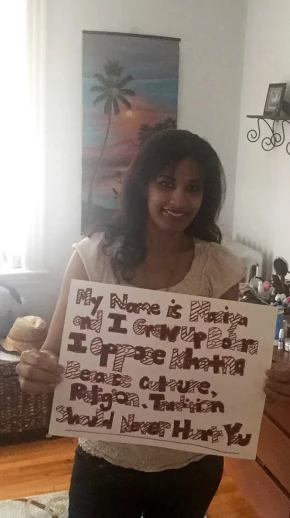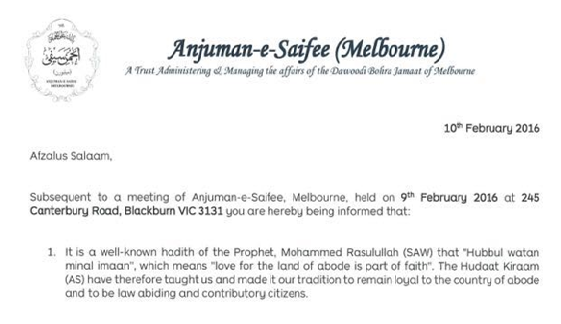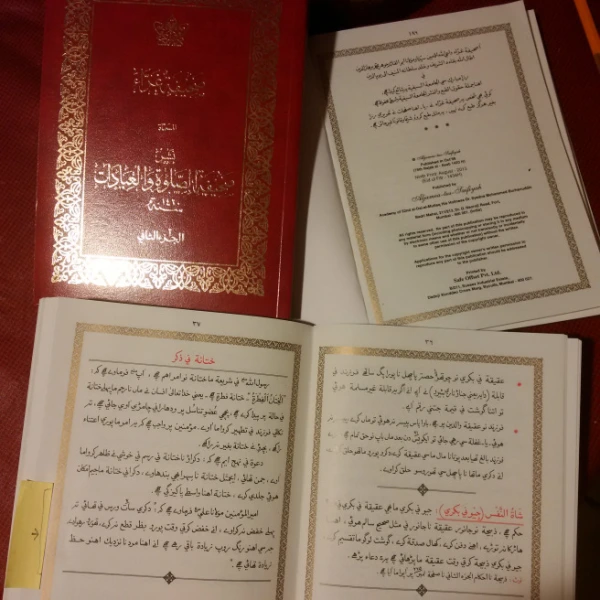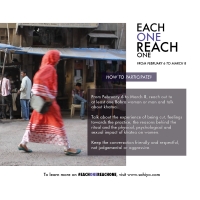Sign up for our newsletter
GET INVOLVED
CONNECT WITH US
U.S. #: +1 508-263-0112
U.S. MAILING ADDRESS:
45 Prospect Street, Cambridge, MA, 02139
© 2024 Sahiyo. All rights reserved | Terms & Conditions and Privacy Policy
Sponsored by the Permanent Mission of the United States of America to the United Nations Permanent Observer Mission of the Organization of Islamic Cooperation to the United Nations
Speakers include:

Mariya Taher
Description: With the rise of Islamophobia in mainstream media, the need to produce alternative narratives that amplify the voices of Muslim women telling their own stories has never been greater. In the last few years, storytelling collectives like the Muslim Women’s Story Lab and Hijabi Monologues have created platforms for Muslim women to reclaim their own narratives, whether discussing issues of women’s leadership and mosque access to rising anti-Muslim sentiment and questions around race and solidarity with broader social justice movements. Mainstream storytelling initiatives, such as StoryCorps, have sought to engage diverse communities, including Muslim women, through community-based outreach. Others, like Breakthrough’s the G word or Sahiyo’s new FGM/C storytelling initiative that aim to spark discussion on gender identity and gender-based violence through interactive digital platforms. Through this roundtable, we hope to bring together a diverse set of speakers, all involved in storytelling as a vehicle for social change, to focus specifically on how their platforms can be used to amplify the voices of Muslim women worldwide. We hope that you can join the Permanent Missions of the United States and the OIC at this roundtable discussion.
For your registration to be accurately reflected, please email This email address is being protected from spambots. You need JavaScript enabled to view it. with the subject line: “Muslim Storytelling”. Please note if you are not already in possession of a UN Grounds Pass or registered to attend CSW with a Temporary Grounds Pass you must register by March 16, 2016.
For more information, visit http://www2.unwomen.org/en/csw/csw60-2016/side-events/calendar-of-side-events#21March
For more information on CSW Side events, visit http://www2.unwomen.org/en/csw/csw60-2016/side-events/calendar-of-side-events
On 8th February, 2016, the Anjuman-e-Burhani Trust of Sydney held a meeting and on 9th
February, a notice was released to all members of the Dawoodi Bohra community in their jurisdiction to honour the laws of the land in which they reside and, accordingly, instructed them to refrain from carrying out the practice of ‘khafd’ or ‘khatna’ (also known as female genital cutting) on their daughters.
In their statement, the Sydney jamaat quoted the Prophet Mohammed Rasulullah (SAW) to ask the community members to respect the laws of their respective countries, like they would their religion, in the lines below:
“Hubbul watan minal imaan”, which means “love of the land of abode is part of faith.”
The Sydney jamaat also informed the community that ‘khafd’ or ‘khatna’ is classified as Female Genital Mutilation (FGM) under section 45 of the Crimes Act of NSW and that the practice would ‘…be interpreted to fall within the specific laws in relation to FGM in other states or territories of the Commonwealth of Australia.’ Clearly stating that ‘khafd’ is illegal, irrespective of the place where where it is carried out, Australia or overseas, community members are advised in the strictest terms to not engage in this illegal act. (Letter can be accessed on the Sydney jamaat website: http://www.sydneyjamaat.com/site/login)
This was followed by another notice on 10th February by Melbourne’s Anjuman-e-Burhani Trust, which was along the same lines as Sydney.
 Letter to Melbourne jamaat by the Anjuman-e-Saifee (Melbourne)
Letter to Melbourne jamaat by the Anjuman-e-Saifee (Melbourne)On 13th February, the London Anjuman-e-Burhani Trust held an ‘extraordinary’ meeting, whereby they passed a resolution instructing all community members to follow in the footsteps of their Australian brothers and sisters and abstain from the act of ‘khafd’. In line with Australia, they quoted the 53rd Dai al-Mutlaq, HH Dr Syedna Muffadal Saifuddin (TUS), who used the Prophet’s words to drive the message home, and emphasized on the seriousness of the crime of performing FGM on a minor which has resulted in the conviction of three (3) members of Dawoodi Bohra community in Australia by the Supreme Court of New South Wales.
In their statement to community members, they have highlighted the new guidelines on Safeguarding Children from female genital mutilation (October 2015) and said in no uncertain terms that ‘khafd’ is against England, Wales and Northern Ireland’s Prohibition of Female Genital Mutilation Act of 2003 and Scotland’s Prohibition of Female Genital Mutilation Act of 2005. **Also, on the website of the Home Office and the Department of Education, UK government, there are guidelines on Mandatory reporting of female genital mutilation: procedural information (October 2015), which, unfortunately, has not been mentioned in the statement released by London’s Anjuman-e-Burhani.
A welcome step and wise decision, indeed, by our community leaders from Sydney, Melbourne and London. However, it is surprising to note, like Dilshad Tavawalla did in her blog on 17th February that “All men in the forum were present to reflect, interact and deliberate about the very personal, private, delicate, sensitive, traumatic and grave issue of “Khafz” (Khafd) or Female Genital Mutilation (FGM) impacting the lives, physical and psychological integrity, and general well-being of thousands of Dawoodi Bohra girl children and women.” And, she asks a most pertinent question that is on all our minds:
“Why no women?”
In addition, all these statements come as a shock due to the contradictory nature of the fact that the practice of ‘khafd’ finds mention in the Dawoodi Bohra community 3-volume publication called ‘Sahifa’ (picture attached of the Ninth Print edition: August 2013) that is published by the Aljamea-Tus-Saifiyah – Academy of the 52nd Dai al-Mutlaq, HH Dr Syedna Mohammed Burhanuddin. In the book, as pointed out by Ms Tavawalla in her blog on 16th February, “the passage enjoins the performance of ‘khafd’ or Female Genital Mutilation on Dawoodi Bohra girls at the age of seven (7) years and the recommended extent and manner for performing it.”
 Sahifa – Published by ALJAMEA-TUS-SAIFIYAH Academy of 52nd al-DAI-AL-MUTLAQ. These are editions in 9th Print: August 2013 (Eid ul Fitr – 1434H). Three (3) volumes.
Sahifa – Published by ALJAMEA-TUS-SAIFIYAH Academy of 52nd al-DAI-AL-MUTLAQ. These are editions in 9th Print: August 2013 (Eid ul Fitr – 1434H). Three (3) volumes.
It is clear that despite these statements counseling against the practice, not all Dawoodi Bohras subscribe to the decision made by the jamaats of Sydney, Melbourne and London. I will direct you to the 17th February blog of a Dawoodi Bohra woman named Rashida Mustafa, who passionately advocates for the practice in the name of tradition. It is truly disturbing to read someone argue in favour of a violent ritual that can leave little girls with terrible and indelible, lifelong scars. Even so, it is obvious from the sacntimonious tenor of Rashida Mustafa’s blog that the letters from any of three jamaats – Sydney, Melbourne and London never reached her attention. As Dilshad Tavawalla says in her blog, Rashida Mustafa must “[…] be afraid – very afraid, […]”. The laws in UK, USA and Canada considers anyone who aids, abets or counsels the carrying out of FGM to be a party to the offence, and hence punishable under those respective countries’ laws (even in countries where the practice is legal, according to the FGM Act, 2003, in the UK).
And, last but not least, there remains the big question of eliminating this practice in India – home to the vast majority of Dawoodi Bohras – and where there is no law per se against ‘khafd’.**
What can we expect from our learned brethren at the Anjuman-e-Shiate Ali, which administers and conducts all affairs of the Dawoodi Bohra community in Mumbai? Can we hope that a notice in line with the praiseworthy and proactive statements against ‘khafd,’ like those released by the Sydney, Melbourne and London jamaats (all based in countries where there are strong laws banning FGM/C), will follow suit?
NB: In a recent article by Anahita Mukherji from the Times of India published on 25th February one can read about the existing laws that can be used against ‘khatna’ in India. Noted lawyers Dilshad Tavawalla and Flavia Agnes were quoted in the article and they pointed out specific sections in the Indian Penal Code and the Protection of Children from Sexual Offences (POCSO) that can be used for the purpose of taking a case to court.
Give us your feedback on the Sydney, Melbourne and London jamaat notices on ‘khafd’ by writing to us at This email address is being protected from spambots. You need JavaScript enabled to view it. or tell us what you think of Rashida Mustafa’s blog! We would like to hear your views on any of these topics, especially if you feel strongly about the resolutions released by the London, Sydney or Melbourne jamaats, and would like a similar statement to be put out to the Dawoodi Bohra community in India and elsewhere.

Each One Reach One, a unique campaign by Sahiyo (in collaboration with Speak Out on FGM), started a month back on NO FGC/M day, has almost come to an end. Today, on the International Women’s day, Sahiyo concludes the last day of the EORO campaign.
The road to change is a long one but we are glad to have made a start by initiating a conversation and breaking silence on Khatna. And for this we have you to thank, for engaging with the campaign and sharing your stories and narratives with us!
Sahiyo is overwhelmed by the response the campaign has garnered and we hope to hear more from you. Please do continue to reach out to as many people as possible and sharing your stories with us.
For reaching out to us, please email on This email address is being protected from spambots. You need JavaScript enabled to view it.. We are looking forward to hearing about your Each One Reach One experience and more!
8th MARCH – INTERNATIONAL WOMEN’S DAY
Women Of All Religions Unite To Fight Patriarchy Within
Women Demand Equal Rights To Access Of Places Of Worship
Date: 8th March 2016
Venue: Azad Maidan, near CST, Mumbai
Time: 2.00 pm sharp
Organisers: Bharatiya Muslim Mahila Andolan, Bhumata Brigade, Sahiyo, Vaghini Sanghatana, Satyashodhak, Roots of Peace, Muslims for Secular Democracy, Gandhi-Ambedkar Vichar Manch & Bharat Bachao Andolan
Religion has been for a long time considered to be the domain of a select few males. Men alone are claimed to have always been the recipients of divine messages, men have been transmitters of the same and men have always kept to themselves the right to read, interpret and apply religious doctrines to the masses. Thus religion has become a tool in the hands of men to suppress women. And this has been going for a very long time. Women on their part have for centuries accepted the hegemony of men over religion thanks to patriarchal socialisation. Men were the givers of religious knowledge and women were the receivers. And if told that they are inferior, that they are impure, women believed in it because it had the force of religion and hence by default the force of God.
With rising consciousness, awareness and an innate confidence in themselves and a strong belief in their own equality before God, women have been raising questions which now are making the men uncomfortable, especially the clergy who have hegemonised religion. It is not surprising that Hindu and Muslim women and women from other minority communities have started raising questions about discrimination within their respective religions. While Hindu women have questioned the restriction on women’s entry into Sabarimala, Shani and Trambakeshwar temples, Muslim women have questioned the decision of the trustees of the Haji Ali Dargah who have stopped women from entering the sanctum sanctorum. Within the Muslim community, Bohra women have begun a campaign to ban the practice of female genital cutting.
Bharatiya Muslim Mahila Andolan has filed a PIL in the Bombay High Court to allow women to enter the sanctum of the Haji Ali Dargah. Bhumata Brigade has made valiant attempts to enter the Shani Shingnapur and Trambakeshwar temples while Sahiyo has been running a campaign to demand a ban on the practice of female genital cutting.
It is important to now celebrate the coming together of women from different religious diversities and to raise a common voice to demand equal rights within religion from the state. Please do join us in large numbers!
The U.S. Centers for Disease Control and Prevention recently released an updated report on the estimate of women and girls at risk or those who have undergone FGC living in the United States. To read the report, click here. Since the last official estimate in 1990 of how many people were affected by FGC, the number has grown to 513,00 – this number is triple the estimate from the 1990 figure. This increased figure is attributed to the rapid growth in the number of immigrants from FGC practicing countries living in the United States.
Yet, these numbers are still an under-representation of the real number of women and girls who have undergone or at risk of undergoing FGC living in the United States. The report estimated this figure by applying country-specific prevalence of FGC to the estimated number of women and girls living in the United States who were born in that country or who lived with a parent born in that country. These countries included: Egypt, Ethiopia, Eritrea, Gambia, Ghana, Guinea, Kenya, Liberia, Nigeria, Senegal, Sierra Leone, Somalia, Sudan, Tanzania, Togo, West Africa, Yemen.
However, at the global level recognition that FGC occurs in countries outside of the African continent has only recently become public knowledge. In the last few years, reports of FGC being practiced in India, Pakistan, Iraq, Singapore, Thailand, Malaysia, various place in Africa, as well as other developed countries where immigrant communities reside (United Kingdom and Australia for example) were not included in these estimates. This limitation to the study is mentioned in the CDC’s report.
Regardless of this oversight in the estimate, the increased figure does validate the need for the U.S. government to provide more education and outreach to practicing communities living in the United States. The figure also points to the need to train social workers, medical professionals, lawyers, etc on the cultural complexities of FGC along with how to work with those women who have undergone this practice in a culturally sensitive manner.
U.S. #: +1 508-263-0112
U.S. MAILING ADDRESS:
45 Prospect Street, Cambridge, MA, 02139
© 2024 Sahiyo. All rights reserved | Terms & Conditions and Privacy Policy